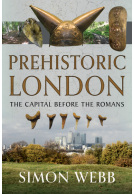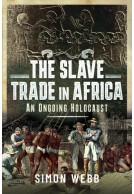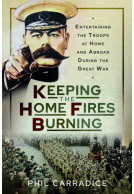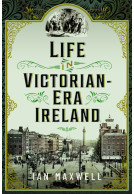Myths That Shaped Our History (Paperback)
From Magna Carta to the Battle of Britain
Imprint: Pen & Sword History
Pages: 164
Illustrations: 20 black and white illustrations
ISBN: 9781473895935
Published: 23rd October 2017
(click here for international delivery rates)
Need a currency converter? Check XE.com for live rates
| Other formats available | Price |
|---|---|
| Myths That Shaped Our History ePub (3.3 MB) Add to Basket | £6.99 |
All nations and peoples have a body of legendary tales and semi-historical episodes which explain who they are and help to define their place in the world. The British are no exception and in this book Simon Webb explores some of the most well-known episodes from British history; stories which tell the British about themselves and the country in which they live.
Examining these events in detail reveals something rather surprising. In every case, the historical facts are greatly at variance with what most British people think that they know about such things as the Battle of Waterloo, Magna Carta, the suffragettes and so on. Indeed, in many cases the reality is precisely the opposite of what is commonly believed. For example, the Battle of Waterloo was not a victory for the British army, Magna Carta did not set out any rights for ordinary people and the suffragettes delayed, rather than hastened, the granting of votes for women.
This book shows that much of what the British believe about their history has been either grossly distorted or is just plain wrong; revealing some of the misconceptions which are held about famous incidents from the nation’s past. In each case, the truth is far richer and infinitely more interesting than the version learned by schoolchildren. These myths, for that is what they essentially are, reveal as much about the way that the British people like to see themselves now as they do about what happened in the past.
An interesting book showing how propaganda and handed-down, unquestioned stories have created a belief system.
For the Love of Books
The dark green cover drew me to this book and the title got my curious mind wanting more.
Starting with the Magna Carta and journeying to the Battle of Britain, this timeline of unchallenged stories have provided the country with a way to raise the morale of soldiers at war and civilians with a way of life. Webb suggests that Great Britain needed to believe historical events happened in a specific way in order to show our strength and prevent threats.
The content provides several photographs which serve to evidence the propaganda with ‘another example of …propaganda being taken at face value without anyone bothering to look at the facts’.
An interesting, if somewhat cynical read that makes you think.
Read the review online here.
Webb’s writing has an engaging sense of style, and requires no second reading of a phrase to understand his meaning. The text flows easily, and the ten myths which he picks apart are each as interesting as the previous one. It is an entirely absorbing subject and a delight to read.
On: Yorkshire magazine - reviewd by Sandra Callard
Click here to read the full review.
Author interview & review
Your Family History, January 2018
Read it for: An interesting debunking of historical 'myths' which could provoke much discussion.
On Page x of this volume’s Introduction, the author makes the following statement: ‘In this book we shall be examining ten myths which have helped to shape the way in which the British see themselves’ It is an accurate summary of what is to follow.
NZ Crown Mines
I found Myths That Shaped Our History to be a wonderfully readable book, exceptionally well-researched, and absolutely delightful to read, even if it did make me re-examine what I thought I knew about British history.
Britain Express, David Ross
Read the complete review here.
About Simon Webb
Simon Webb is the author of a number of non-fiction books, ranging from academic works on education to popular history. He works as a consultant on the subject of capital punishment to television companies and filmmakers and also writes for various magazines and newspapers; including the Times Educational Supplement, The Daily Telegraph and The Guardian.






















